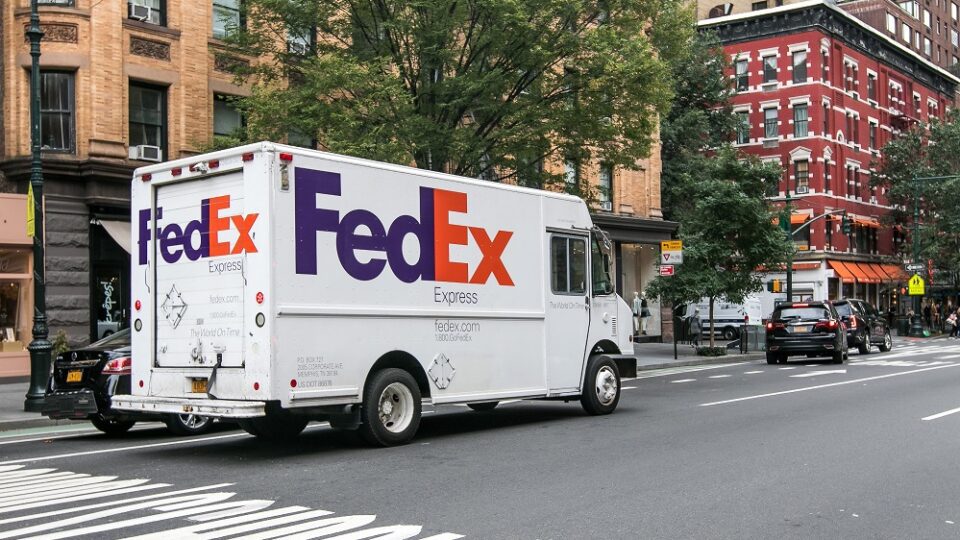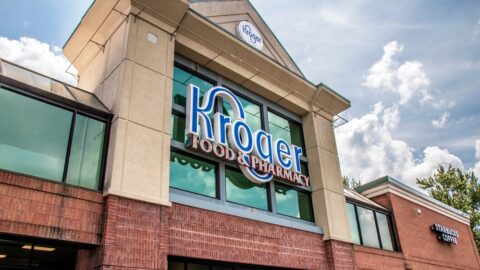FedEx is known for the logistics scale and expertise it has developed over a half century in business. Just a few statistics tell the story: the company delivers 15 million packages every day in 220 countries and territories. What might be less well-known is FedEx’s scale and breadth of data: the company generates one petabyte of information daily — the equivalent of 20 million tall filing cabinets’ worth of information.
That rich data infrastructure is behind FedEx’s newest offering: fdx, “a comprehensive commerce platform that is closing the gap between physical and digital, managing supply chains from the point of demand to the point of delivery and including returns,” according to Raj Subramaniam, President and CEO of FedEx. Subramaniam delivered a keynote address at the NRF Big Show on Jan. 14.
“A seamless end-to-end customer experience requires orchestration across the value chain, and FedEx is the only logistics company for that customer journey,” Subramaniam noted. “It’s for companies of all sizes in one platform.”
Some of that diversification began with FedEx’s acquisition of its ShopRunner ecommerce platform. By leveraging dot-com FedEx properties to the tune of 20 million customer interactions daily, use of the platform “introduces your [retailers’] companies to high-value repeat customers and drives traffic to your brand,” said Subramaniam.
Deeper, More Granular Data
FedEx is looking to solve some of retailers’ (and consumers’) sharpest pain points, including meeting promised delivery dates. “We use predictive delivery data to better anticipate expected delivery dates, using machine learning in real time,” said Subramaniam. “We can set precise delivery expectations from the product listing page to the shopping cart to the checkout. Northern Tool + Equipment uses this to offer a differentiated experience that reduces their customer service calls and improves their cart abandonment rates.”
When a delay, even a potential delay, does occur, consumers expect to be kept in the loop. “Real-time [package] tracking is no longer a benefit; it’s an expectation,” said Subramaniam, noting that the vast majority of consumers “expect to be informed about delays prior to the delivery date. We help companies make informed decisions with real-time transparency, using learned patterns from across our network.”
Subramaniam also noted the value being placed on sustainability. “We can provide shippers with predictive carbon emissions data down to the account and package level,” he noted. “This allows them to make smarter decisions, estimate future impacts and improve their carbon footprint strategy. And with custom cart integrations [with our system], retailers can provide consumers with this eco-conscious data even at the point of purchase, which improves conversion.”
Developing a Digital Twin of a Physical Network
Subramaniam noted that the digital infrastructure needed to support the launch of fdx took two years to develop, but he sees this strong backbone as a point of differentiation with other shipping and logistics company. Part of that is just the sheer scope of the company’s data-gathering: he noted that 40 million customers have signed up to track their online shipments, which helps “unlock access to millions of consumers actively shopping online and driving more shoppers back to the ShopRunner brand.”
Subramaniam also shared a startling statistic that demonstrates how much COVID-19 has changed retail and delivery logistics. Prior to the pandemic, approximately 75% of FedEx stops were made at businesses; now, 75% are residential stops. He drew a distinction between stops and the number of packages delivered, noting that a delivery to a business would likely involve multiple packages while a residential delivery would typically consist of just one package.
“FedEx has always been a data-driven company; we were founded on the belief that innovation can solve problems,” said Subramaniam. “We launched an industry 50 years ago, built the network and gained knowledge about the global supply chain. This is the data we’re going to democratize, turning insights into real-time intelligence to help companies compete and win.”













